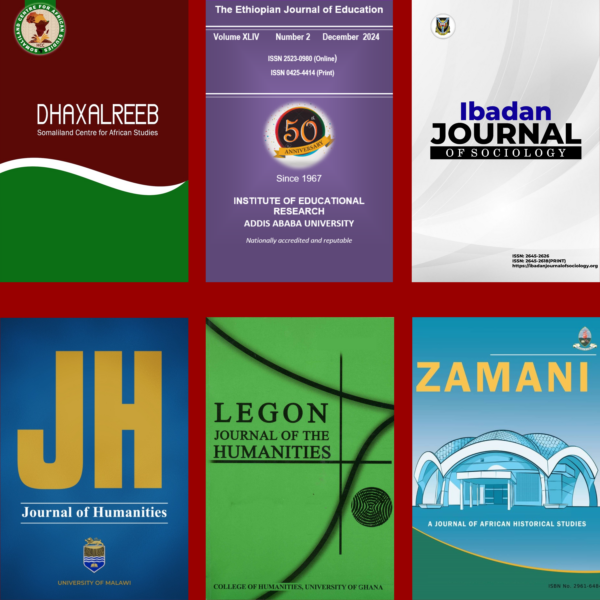JSTOR is proud to partner with Pluto Journals and the African Books Collective to support the African Journals Initiative, a new pilot program that seeks to promote diamond open access publishing across the social sciences and humanities in Africa. Through this collaboration, we have launched six open access journals on our platform, freely available to all, to help elevate valuable research from institutions across the continent.
We’re honored to be part of this collaboration, which reflects a shared commitment to equal access in scholarly communication and to making African research more visible and accessible in a global context.
About the initiative
Led by Pluto Journals and the African Books Collective, the African Journals Initiative supports journals affiliated with African universities and university presses. Each year, six established, high-quality journals will be added to the program. The initiative is exploring sustainable models for open access publishing, while aiming to:
- Raise the global profile and discoverability of African scholarship
- Drive increased usage and submissions
- Create a replicable, scalable model for no-fee open access publishing in the Global South
JSTOR is offering platform support and usage analytics for the initial cohort of six journals to support Pluto Journals’ outreach and fundraising efforts.
The six journals now on JSTOR

The pilot cohort, available now on JSTOR, includes the following journals.
Dhaxalreeb
A pan-African, peer-reviewed journal from the Somaliland Centre for African Studies, Dhaxalreeb is rooted in indigenous knowledge production and research focused on the Horn of Africa.
Ethiopian Journal of Education
Established in 1967, this journal explores educational systems and policy, advancing discourse on access, equity, and transformation in Ethiopia and the broader region.
Ibadan Journal of Sociology
A platform for research in sociology and anthropology, this journal publishes work on social policies, practices, and reforms in African contexts.
Journal of Humanities
Published by the University of Malawi, this journal welcomes pluralistic perspectives in literature, communication, philosophy, and the arts—prioritizing work centered in Southern, Central, and Eastern Africa.
Legon Journal of the Humanities
This interdisciplinary journal from the University of Ghana focuses on African cultural, linguistic, philosophical, and historical studies, fostering dialogue between humanities and social sciences.
Zamani: A Journal of African Historical Studies
This addition will center African historical narratives and scholarship, contributing to the decolonization of historiography.
As they appear on JSTOR, each journal includes all available born-digital content to date. While we’re not digitizing backfiles yet, our three-year commitment ensures continued updates and permanent access to this body of scholarship going forward.
Why this matters
This project advances JSTOR, Pluto Journals, and the African Books Collective’s shared mission to increase access to scholarly content and to support sustainable open access solutions, especially in regions with historically low content visibility. It’s our hope that expanding access to these valuable resources will continue to address the ever-growing demand for open materials in education. Moreover, this is part of JSTOR’s larger effort to connect with African universities to help them access and make accessible a wide range of research materials.
Pluto Journals and the African Books Collective look forward to enhancing discoverability and streamlining access to journal content through this collaboration. As usage builds, they’ll be able to target outreach and refine their funding model, creating a more balanced publishing future.
Explore and share
We encourage readers—whether you’re a researcher, librarian, or simply curious—to explore these journals and support the work of African scholars and institutions. Their research is vital, and now, more accessible than before.
If you would like to support this initiative, contact Brett Thomas, Library Relations Manager at Pluto Journals: Brett@plutojournals.com



